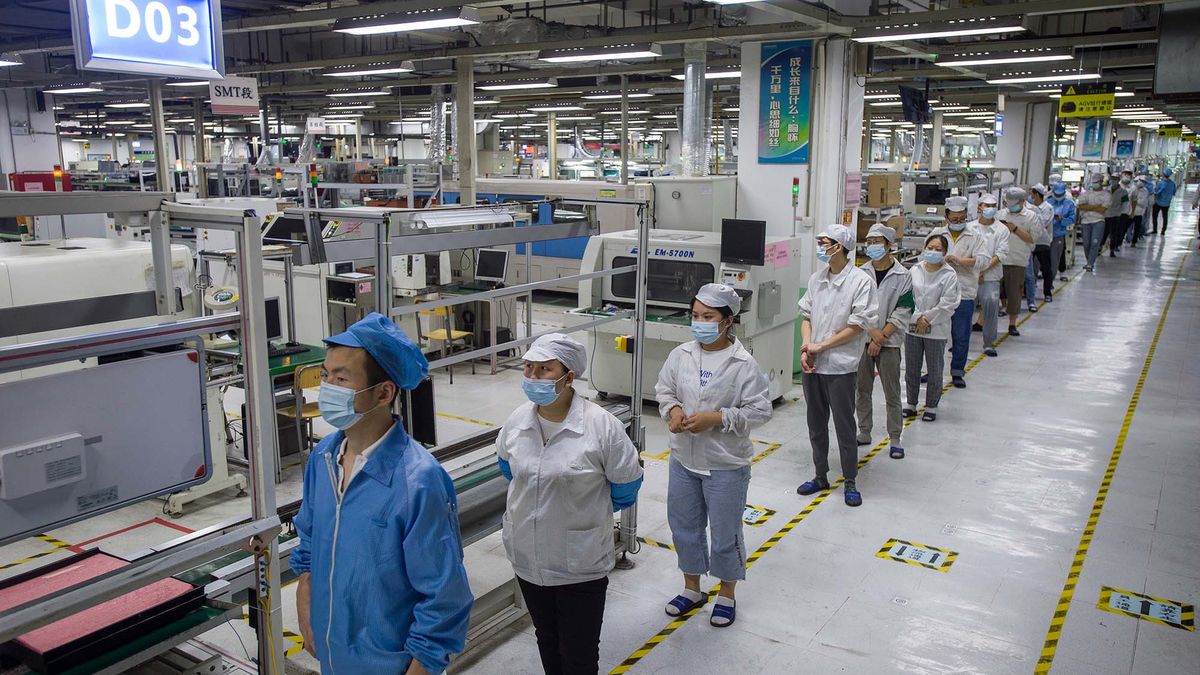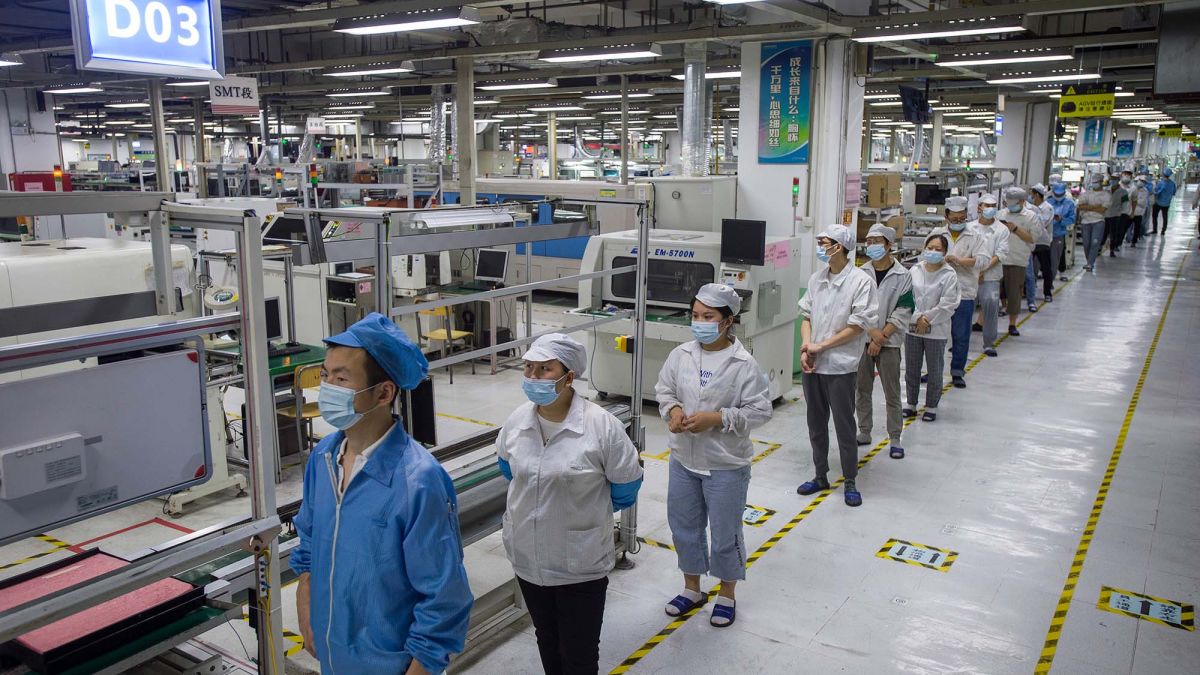
As Covid cases continue to rise in China, many major tech suppliers are having to close their factories or restrict the movement of their workers, something that might be a huge headache for Apple this year as roughly half of its Chinese suppliers are in and around the hardest hit region of the country.
A new analysis conducted by Nikkei Asia found that found half of Apple’s 200 main suppliers are in or around the city of Shanghai, which is currently in the midst of a weeks-long lockdown at the direction of the Chinese government.
Shanghai is currently struggling with one of the largest surges in Covid cases that China has seen since the start of the Covid epidemic in 2019. Under China’s official “Zero Covid” policy, anyone who tests positive for Covid is forced into isolation in an effort to eliminate community transmission of the coronavirus that causes the disease.
This is worrying a lot of industry leaders and analysts, since the number of factories that have been shuttered or operated at reduced capacity could quickly exacerbate the supply chain crisis that is producing shortages and price inflation around the world.
Chinese officials aren’t oblivious to this threat, and this week factories have been told they could start reopening under a closed-loop production model, where factory workers remain isolated and do not interact with the surrounding community. According to the Guardian, Tesla factory workers, for example, were reportedly told that they must sleep onsite rather than go home after their day was done.
TechRadar has reached out to Apple for comment on the situation in Shanghai and related supply chain concerns and will update this story if and when we hear back from the company.
Apple’s supply chain has been resilient, but can it continue to hold up?
While Apple isn’t the only major tech company impacted by the factory closings in and around Shanghai, the fact that so many of its top suppliers are there could be especially problematic.
Nikkei Asia reports that more than 70 of Apple’s suppliers have factories in the neighboring Jiangsu province and most of those are in Kunshan and Suzhou, two cities that are geographically close to Shanghai. Another 30 suppliers are in Shanghai itself, and, taken together, supply everything from printed circuit boards to batteries and include major product assemblers like Pegatron.
“We think the impact is much more serious than the power outage last year as it involves a wide range of supply chain,” display supplier AU Optronics chairman Paul Peng said, speaking of the enforced power consumption reductions the Chinese government directed in September 2021. “The disruption is not to a single company or industry, it’s a global supply chain incident that could lead to a supply chain cutoff in the worst-case scenario.”
Assuming that production restarts in Shanghai and the surrounding areas without issue – a big if, given the amount of Covid transmission in the region – it will still take time to restart production lines and get them up to running at full capacity.
What’s worse is the timing of the disruption. It takes months for products like MacBooks and iPhones to be produced, tested, packaged, and shipped overseas to global markets in Europe and North America. The products that should be hitting store shelves during the November and December holiday season would typically start being made in the next several weeks. Disruption at this point in the cycle could lead to missing targets for the end of 2022.
“May and June will be crucial for many consumer electronics brand vendors,” an executive at a supplier for HP said to Nikkei Asia. “If production does not ramp up in time for goods to be shipped via ocean cargo, there is a chance they could miss the Christmas holiday sales season in Europe and the U.S. due to congestion at ports – unless they ship by air, which is much more expensive.”
Whether Apple’s suppliers can resume production on time and ship their products out on schedule might not just threaten holiday season inventories, but it could potentially threaten product launches expected to come later this year, particularly the new iPhone 14 and the MacBook Air, both of which are major flagship products for the company.
